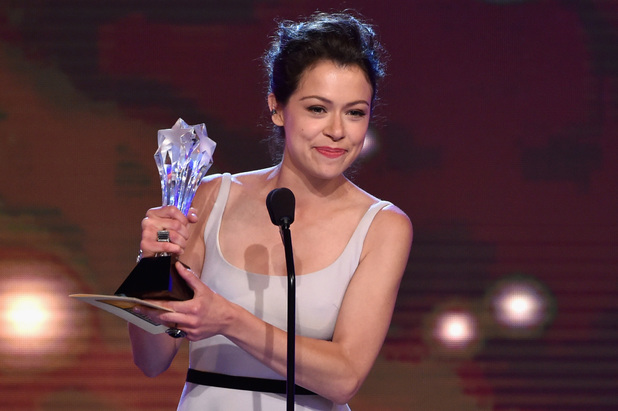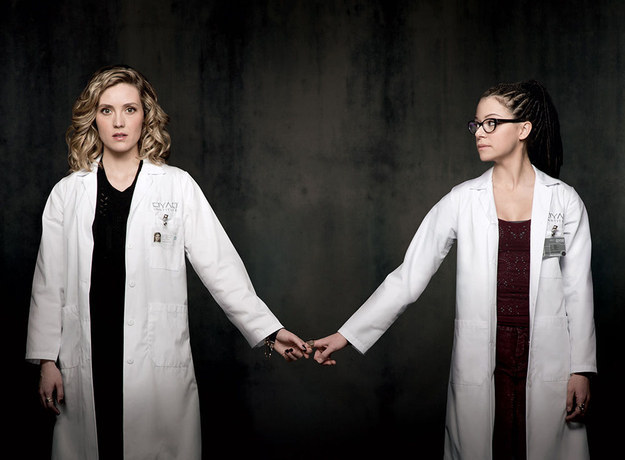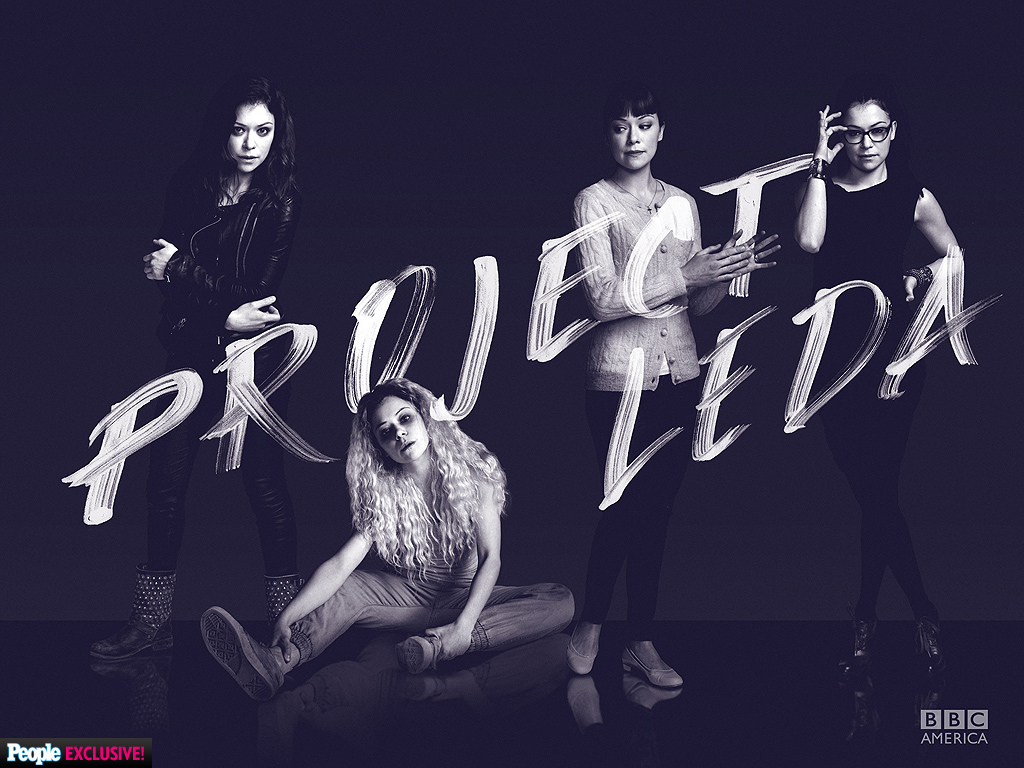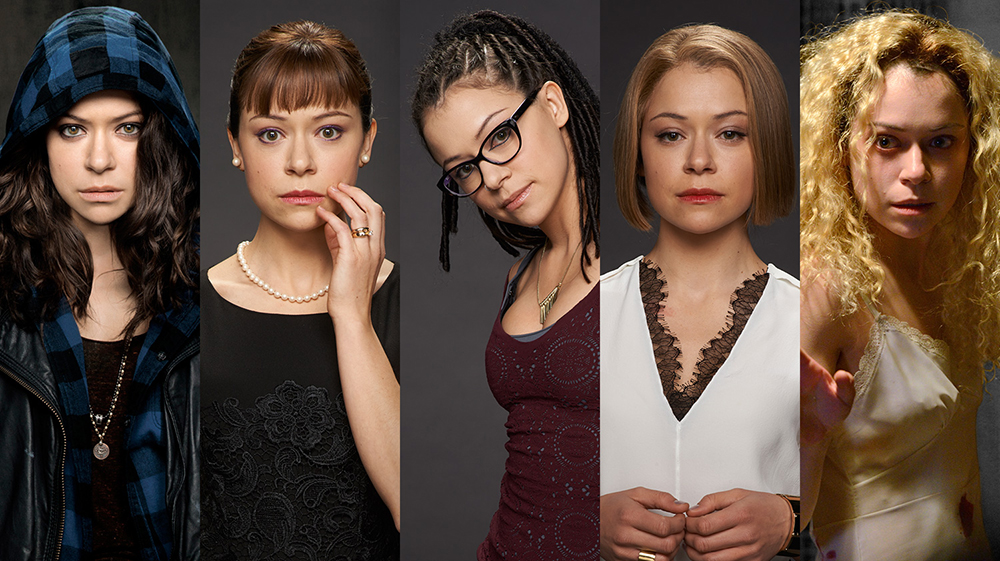Tatiana Maslany has said that she feels a “strong sense of responsibility” to Orphan Black‘s LGBT fans.
Maslany portrays a number of different characters in the sci-fi clone drama, including scientist Cosima – who is engaged in an on-off relationship with Delphine (Évelyne Brochu).
Talking at New York’s PaleyFest Orphan Black panel, Maslany said
I knew subconsciously we were talking about bodily autonomy, but it was reading essays from trans people and gay people that opened my eyes to how that was being talked about.”

Maslany also praised the show’s style, adding:
What I like is the show isn’t preachy, it just is. We put women at the centre, [and] they’re the default, but who cares? And that to me is so awesome and I hope for more of that
It’s everywhere; reproductive rights, LGBT rights, transgender rights – I’m glad we get to reflect that. We talk about how your choices aren’t your destiny, your body’s not your destiny. You’re your destiny.”
In another interview earlier this year, Maslany talked candidly about the show’s bisexual representation between Cosima and Delphine – saying that she is not on display for the “male gaze”.

We offer good representation in terms of complex characters that aren’t defined just in terms of their sexuality, but by every facet of what it is to be a person.
One of my favourite things that has ever been written on the show is when [Cosima] said ‘my sexuality is not the most interesting thing about me’. They’re not ‘on show’, they’re not on display for the male gaze. They’re not sexualised in that way, but they are sexual with each other, and they are intimate.
Whether Delphine identifies as bisexual, however she identifies herself, she’s open to loving Cosima, and there’s no question.
It’s about the love between them, not about the fact that they’re two women.”










